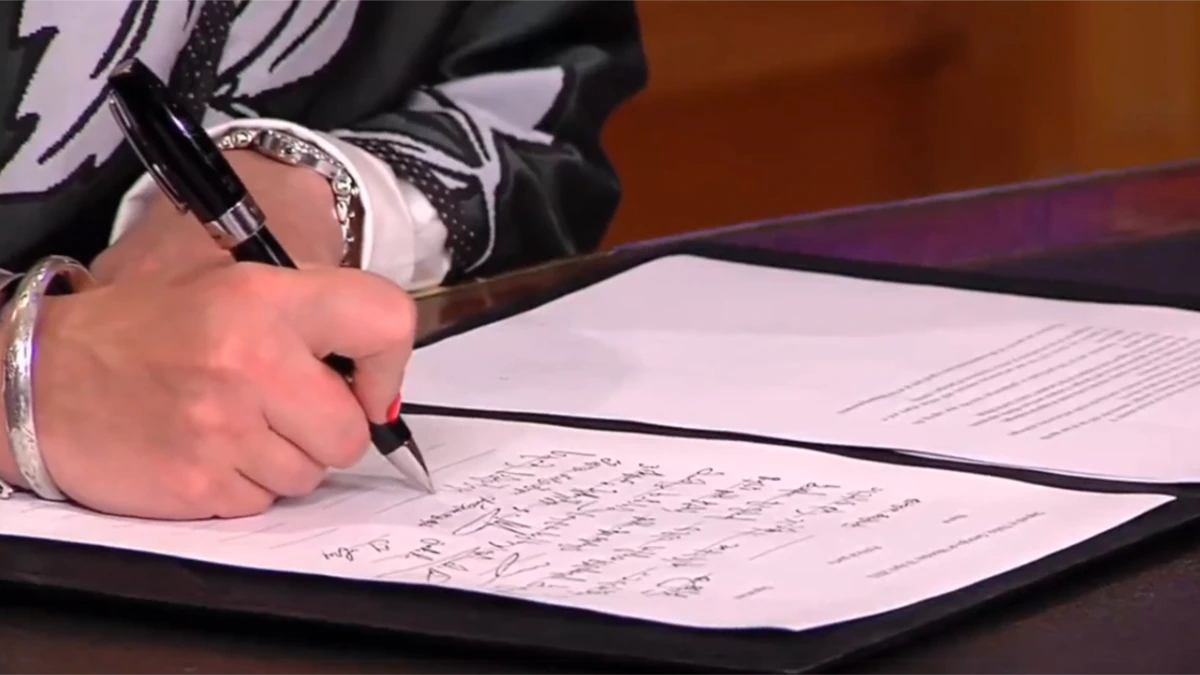
Georgia’s ruling party and part of the opposition signed an EU-mediated deal on April 19 to end months of political crisis in the Caucasus country.
Georgia was plunged into political paralysis after the ruling Georgian Dream party won a parliamentary election in October, in a vote the opposition said was unfair and fraudulent.
The opposition has boycotted the new parliament and staged protests demanding new elections.
The EU, backed by the United States, has played a mediating role in resolving the crisis in the small country with ambitions of strengthening ties with the West.
“This agreement is not the finish line. This agreement is the starting point for your work towards consolidating Georgia’s democracy and taking Georgia forward on its Euro-Atlantic future,” said EU Council President Charles Michel via videolink as he joined the signing at the presidential palace in Tbilisi.
Michel, who has led EU mediation, said he will fly to Tbilisi on April 20 to strengthen the deal and boost ties with Georgia.
The U.S. Embassy welcomed the compromise and called on all sides to fully implement it.
“While the signing of this agreement is a significant step, ending months of negotiations, we recognize that its implementation is equally important,” the U.S. Embassy said in a statement.
Under the agreement, several opposition parties agreed to enter parliament.
The deal stipulates that early parliamentary elections be called in 2022 if Georgian Dream gets less than 43 percent in upcoming local elections. It also sets the rules for power-sharing in parliament, outlines reforms to the judicial system, and suggests reforms to the Central Election Commission.
However, the largest opposition force, the United National Movement (UNM), did not sign the agreement.
Salome Samadashvili, the only UNM leader to sign the agreement, suggested the party would join when Michel arrives and UNM chairman Nika Melia is released from jail.
Melia was detained in February for breaking parole terms related to charges of inciting violence during protests that erupted in 2019, a case the opposition says is political.
Melia’s arrest exacerbated the country’s political crisis, leading to the prime minister’s resignation and condemnation from the West.
The agreement suggests Melia will be released, with a clause pledging to resolve cases of “perceived politicized justice” through amnesties or similar measures within a week.
With reporting by AFP, Reuters, and RFE/RL’s Georgian Service
This post was originally published on Radio Free.